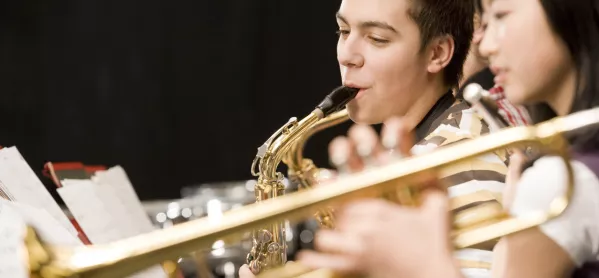A former Conservative minister has condemned the “relentless focus on Stem, the three Rs and the EBacc [English Baccalaureate]” which he thinks should change.
Ed Vaizey, a former culture and creative industries minister, jointly commissioned the Henley report on music education in 2010 with then education secretary Michael Gove.
Viewpoint: ‘We need an ‘arts premium’ in schools’
Research: ‘Sad decline’ of music in schools revealed
Music: Concerns raised as exam board awarded curriculum contract
But Mr Vaizey told MPs today that “one of the frustrations of working with the former secretary of state for education was that while, on the one hand, he was a fantastic colleague in supporting me in campaigning for better funding and a clearer organisation for music and arts education, on the other hand, his relentless focus on Stem, in effect the three Rs, and the EBacc not only caused an enormous amount of confusion for teachers in an ever-shifting curriculum - but [gave] a clear signal to them that they would not be rewarded for putting arts and music at centre of their schools.
“It became this terrible paradox, that teachers became afraid to do that because they felt they would be penalised in the league tables, and that is something that can and must change.”
And Mr Vaizey ended his remarks by calling on “the funky Gibb that sits before us” to stand up for music education.
The debate in Westminster Hall today was secured by James Frith, Labour MP for Bury North and a former musician who once played at Glastonbury Festival.
Drawing on his own experiences of recording music, Mr Frith said: “The EBacc is not something you can ‘fix in the mix’. You have to re-record it.”
He called for music to be included in the EBacc in order to protect it as a core subject.
Nick Gibb, schools standards minister, replied to MPs that: “This funky Gibb will and does stand up for music in our schools.”
He said that the model music curriculum, which is due to be published shortly, is designed to provide schools with sequenced and structured curriculum for music teaching that aims to make it easier for teachers to plan lessons and so reduce their workload.
He added that the government was putting more money into arts education programmes than any other subject except PE, with nearly half a billion pounds to fund music and cultural programmes between 2016-20.
But he refuted suggestions that the EBacc had an impact on music GCSE entries.
“It is not the case that the EBacc has had an impact on the uptake of music GCSE; the proportion of pupils entered for GCSE music has fluctuated since 2010 but has remained broadly stable at 6 or 7 per cent,” he said.
Mr Gibb added that the EBacc had been designed to be limited to allow pupils to study important additional subjects, such as music.





